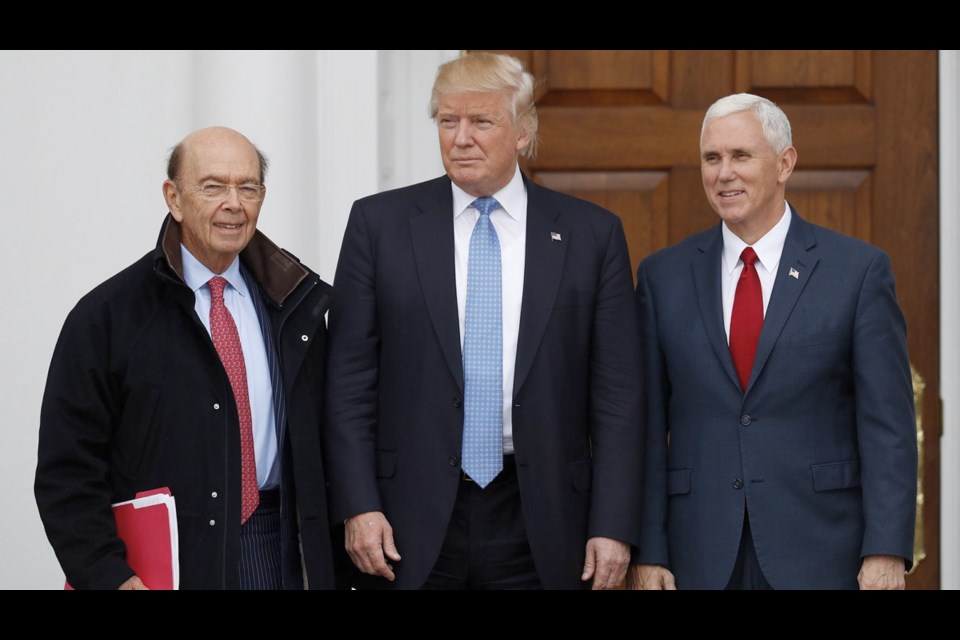 Catalyst Paper’s reaction on Wednesday was pretty much what you’d expect from an outfit that’s just been kneecapped by the U.S. government for the second time in a few years.
Catalyst Paper’s reaction on Wednesday was pretty much what you’d expect from an outfit that’s just been kneecapped by the U.S. government for the second time in a few years.
They’re “disappointed.” The latest attack is “unwarranted and unjustified.” They’ll retain a bunch of expensive lawyers and likely spend the next few years arguing U.S. trade policy.
Meanwhile, job security for 583 people at the Crofton paper mill, 326 at Port Alberni and 357 at Powell River just got a bit more tenuous. The market for newsprint isn’t what it once was, and the U.S. decision to jack up the price by six per cent, with likely more to come, doesn’t make it any better.
The U.S. has imposed a preliminary six per cent duty on all the shipments from those mills to U.S. customers. The duty, with a few variations, applies to all imports of Canadian uncoated groundwood paper from various mills across the country. It includes newsprint and paper used for flyers, directories and book publishing.
None of the customers wants a new duty. None of their customers in turn wants to pay more. But a Washington state paper mill owned by a hedge fund looking for a quick bump in revenues filed the application last summer.
The commerce secretary had the application on his desk. He had a letter from 1,100 desperate newspaper publishers advising that it was just a shakedown effort from a single producer that should be ignored. He had word from eight senators opposed to the idea for the damage it would create in the industry.
But he set a course to go through with the duty, regardless. It’s a characteristic of U.S. trade policy, that nearly any corporation in the country can use the government’s trade policy to boost profits, no matter how much damage it does to the economy. Canadian forest-products exporters struggle when it comes to explaining how irrational their largest customer is when it comes to trade. That has held true through various administrations, but President Donald Trump’s policies leave them almost at a loss for words.
Trump-watching has been a morbidly fascinating spectator sport for the past year or so. Now it’s turning into a serious monitoring of issues that hit British Columbians where they live.
The paper war is starting just as the softwood-lumber wars did years ago. It has been an endless round of disputes started by one small U.S. interest group entirely for its own benefit. They lose hearing after hearing, but the duties last long enough to force compromises from Canada.
The model has worked well enough for some U.S. lumber producers that now, a paper mill is trying it out.
Catalyst spokeswoman Eduarda Hodgins said a substantial part of the company’s production from the three coastal mills is shipped to the U.S. The company is counting on federal and provincial support to mount a vigorous defence, but Hodgins said it is an onerous process to respond to the duty.
The U.S. imposed an 11 per cent duty, later upped to 19 per cent, on one specialty product — supercalendared paper — manufactured by Catalyst in Powell River three years ago. It lasted for a couple of years before the company was exempted.
Canadian politicians condemned the latest duty on Wednesday, but that doesn’t accomplish much.
The real response should be through trade missions such as the one Premier John Horgan is starting Jan. 20 to Asia. B.C. has made real progress diversifying its trade, based mostly on the huge new appetite from China.
Now there’s a new dynamic. A destructive push from the U.S. to kill Canadian trade adds a real urgency to these sorts of missions.
It’s not just a matter of jetting over to capitalize on the new demand. It’s more like making a concerted pivot away from a partner who’s coming unhinged. Signing new deals with Asian customers whose policies aren’t so hopelessly corrupted isn’t just a bonus for B.C. any more. It’s an urgent necessity.
B.C. will never fully disengage from U.S. trade.
But the less the forest industry has to do with the U.S. from here on, the less exposed B.C. is to this kind of lunacy.



